I Dig Sports
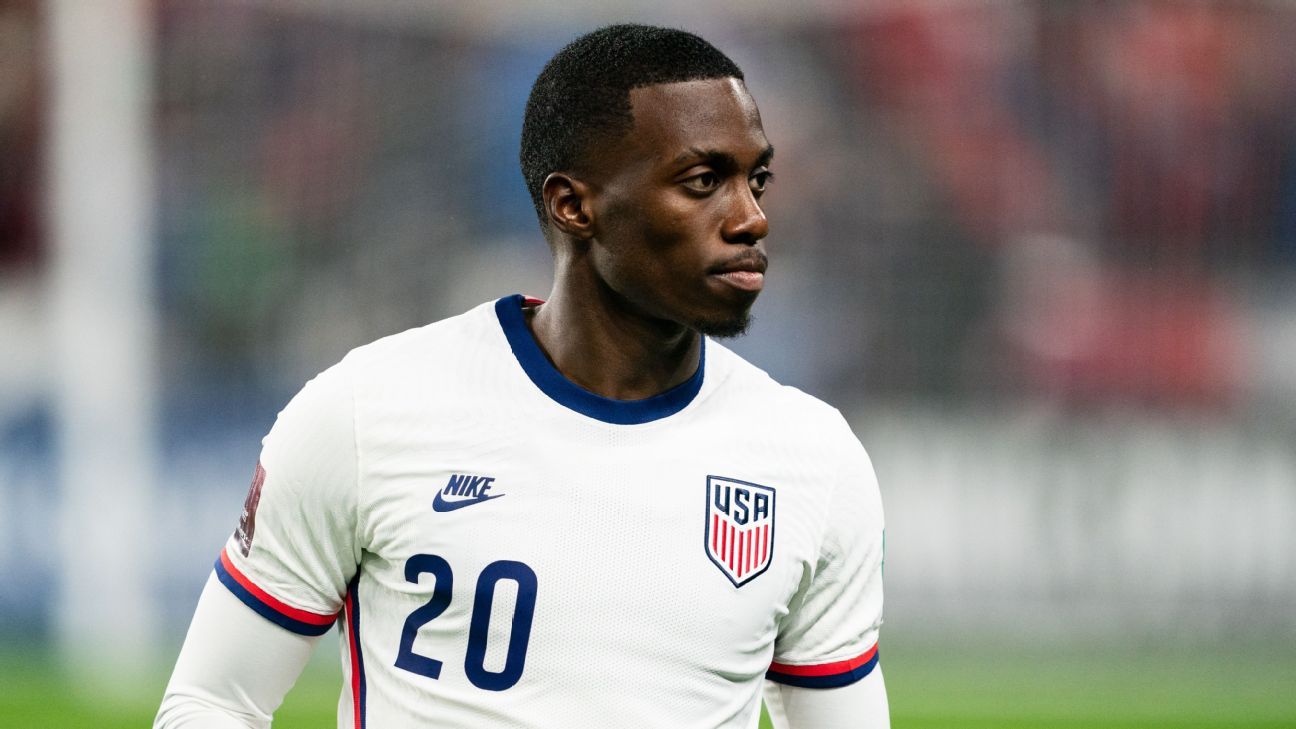
USMNT midfielder Tim Weah didn't accompany the team to Hamilton, Ontario, and will miss Sunday's World Cup qualifier against Canada due to his vaccination status not meeting the country's entry requirements, manager Gregg Berhalter said on Saturday.
- ESPN+ viewers' guide: LaLiga, Bundesliga, MLS, FA Cup, more
- Stream ESPN FC Daily on ESPN+ (U.S. only)
- Don't have ESPN? Get instant access
Berhalter said that Weah had received one dose of a vaccine, and then caught COVID-19, preventing him from getting the second shot with enough time to satisfy Canada's requirements. Weah is considered vaccinated in France, where he plays for Lille, and was able to enter the U.S. for last Thursday's game against El Salvador. He is expected to be available for Wednesday's qualifier against Honduras at Allianz Field in St. Paul, Minnesota.
"[Weah] had one shot, one vaccination. He got COVID, he was awaiting the second shot," said Berhalter. "Due to the time of when he got COVID he wasn't able to get that second shot yet. However, in France, he is listed as fully vaccinated because in France, the one shot plus COVID means you're vaccinated and you're OK. As a technicality, it wasn't acceptable in Canada. This is something we can't control, the nuances of COVID protocol, and we just have to deal with it.
"This was a nuanced technicality that we were hoping was going to get pushed through and unfortunately it didn't."
According to the Canadian government, to qualify as a fully vaccinated traveler, an individual must have received at least two doses of a vaccine accepted for travel, a mix of two accepted vaccines or at least one dose of the Johnson & Johnson vaccine. The second dose must have been received at least 15 days before an individual enters Canada. Travelers must also have no signs or symptoms of COVID-19.
Berhalter said that it was only in the past couple of days that the USSF was made aware that Weah's vaccination status would be an issue. The Canadian government doesn't allow exceptions to the entry requirements for travelers.
The loss of Weah is a blow for the U.S. given his excellent form of late. Weah created the game-winner in the 2-1 win over Costa Rica in October, scored the lone goal in the 1-1 draw at Jamaica and had the game-winning assist against Mexico during the November window. But the U.S. has cover at the wide forward position, with Brenden Aaronson also showing well during qualifying, scoring against Honduras and Canada.
Naseem Shah five-for, Ahsan Ali fifty knock over Karachi Kings
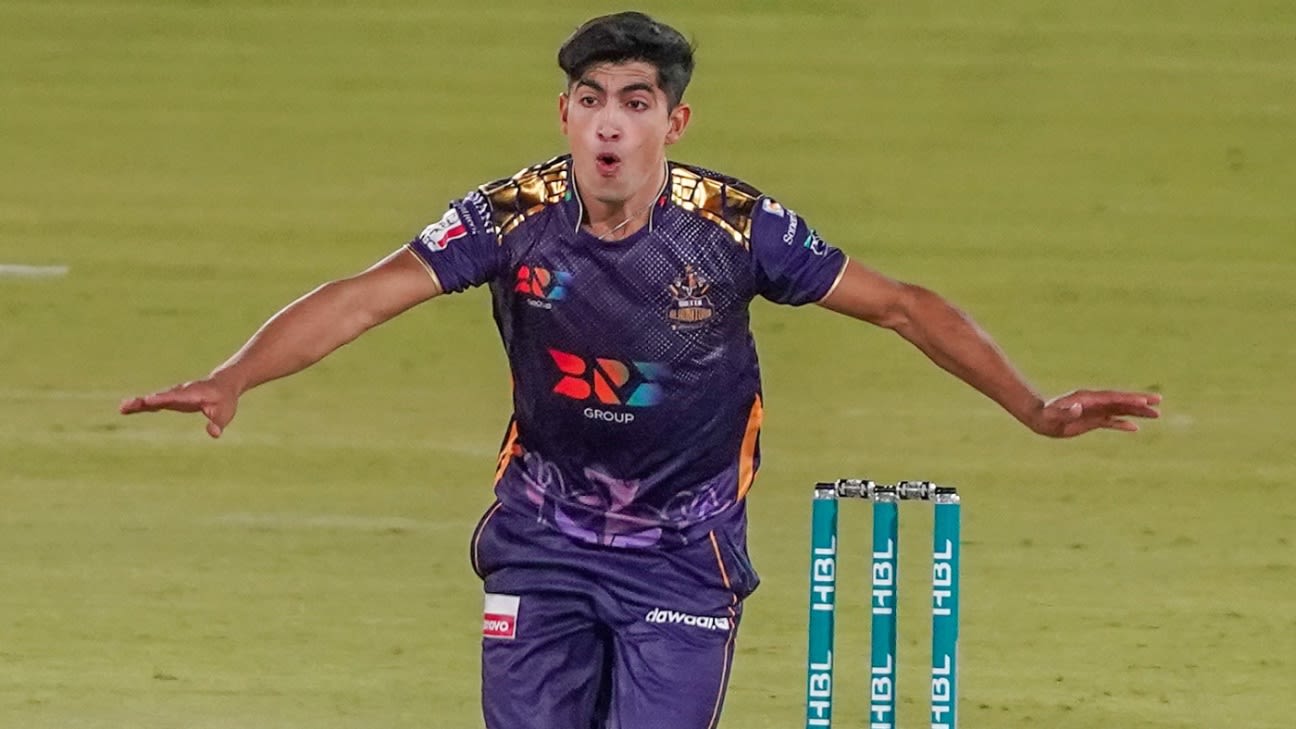
Danyal Rasool is a sub-editor at ESPNcricinfo. @Danny61000
Australian Open: 'Ashleigh Barty cements place as national hero with Melbourne win'
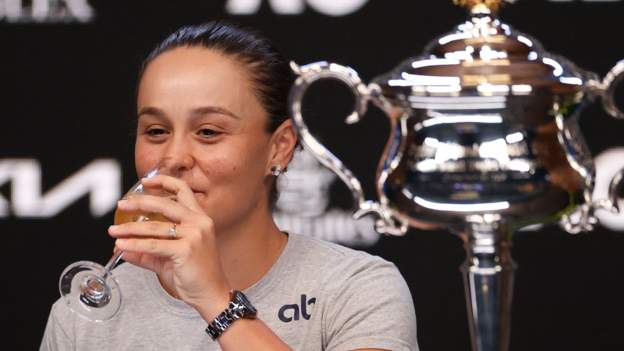
Cracking open a beer on live television, shortly after ending Australia's long wait for a home singles champion, will - for many - have further cemented Ashleigh Barty's reputation as a national hero.
The 25-year-old, of course, had already long achieved that status through her tennis achievements.
Winning her first Grand Slam at the 2019 French Open was backed up by success at Wimbledon last year.
Then, on Saturday, to the ecstasy and relief of a nation, she became the first home player to win the Australian Open men's or women's singles title in 44 years.
Later that night, while she was doing the rounds of post-victory interviews, there was further home success in Melbourne when Nick Kyrgios and Thanasi Kokkinakis clinched the men's doubles title.
In a city which has endured one of the toughest lockdowns in the coronavirus pandemic, and for a tournament which was clouded in controversy at the start, it brought a welcome feel-good factor.
"As Aussies, we're exceptionally lucky to be a Grand Slam nation," said Barty.
"To get to experience playing at home is really special, and to be here as a champion of the tournament is really exciting."
The level-headed Barty is rarely overcome by emotion, either on court or during her media interviews. When she clinched victory on Rod Laver Arena with a cross-court winner, there was an uncharacteristic outburst when she screamed her delight.
"It was a little bit surreal," said the world number one.
"I think I didn't quite know what to do or what to feel, and I think just being able to let out a little bit of emotion, which is a little bit unusual for me.
"I think it just kind of all came out at once. It was a really, really special moment."
Barty's triumph means she has won major titles on clay, grass and now hard courts. Serena Williams is the only other active female player to have achieved that feat.
On the men's side, only Roger Federer, Rafael Nadal and Novak Djokovic have done the same.
"I feel very humble to be in such a select group. I don't really feel like I belong with those champions of our sport," said Barty.
"I'm still very much learning and trying to refine my craft to get better and better.
"To have a Grand Slam title on each surface is pretty amazing. I never probably thought it would ever happen to me."
An estimated two million Australians were set to watch television coverage of Saturday's final, according to Channel Nine.
That's said to be a high figure in a country with a population of little over 25 million, and showed how desperate the nation was to watch history be made.
Inside Rod Laver Arena, there were 12,000 people watching. The noise and atmosphere made it feel like there were thousands more.
Illustrious names from the Australia's rich sporting past including 11-time major singles champion Laver, 400m runner Cathy Freeman and swimmer Ian Thorpe watched from the comfy seats, as did internationally renowned celebrities such as Dannii Minogue and Russell Crowe.
Flags, whether Australian, Aboriginal or green and gold, were waved in most sections of the stadium. Splashes of yellow were dotted around the arena from fans wearing Barty T-shirts, provided by a popular yeast extract brand.
While people either love or hate that stuff, there was nothing but overwhelming affection for the player.
"She's a sweet and loved girl across Australia. Her relaxed personality makes her hugely popular - nobody doesn't like her," said Pat Cash, the Australian who famously won Wimbledon in 1987.
"Even people who don't like tennis, say: 'Oh Ash? Yeah, she's cool.'
"She's a wholesome character who everyone thinks is their mate."
Outside Rod Laver Arena, fans agreed.
"Getting an Australian sportswoman to win the Open is massive for us," said Amy Creasey, a Melburnian sports fan.
"She's so down to earth. She's a real Aussie. That's great to see."
Another of the group, Susie Hadgkiss, added: "She's open, inviting, fun, carefree. If you met her, she'd talk to you like a normal person."
Unsurprisingly, considering her success and standing, Barty has been the poster girl of the Australian Open.
Advertisements around Melbourne Park are plastered with the Queenslander's face, so too is a 20ft billboard in the shadow of the famous Flinders Street station, and a big screen in the city's main shopping area.
Barty has struggled to get over the line at the Australian Open in recent years, most notably in the 2020 semi-finals, but her Wimbledon success perhaps helped her overcome the expectation.
"The more you play under pressure the better you get," Cash, a beaten Australian Open finalist in 1987 and 1988, told BBC Sport.
"Of course, there is a lot of expectation. When you're playing at home people expect great things and you're on the front page every time you win.
"It's not easy but you find ways around it to manage it."
Reflecting on his appearances in Melbourne, Cash said being able to stay in his family home had enabled him to switch off from any scrutiny.
"Ash does that very well," he said. She's very easy going and happy to stay in her room. She doesn't listen to too much talk and just hangs with her team.
"She just rolls with it. It's water off a duck's back.
"She loves to go out and challenge herself but it's not the end of the world: it's a tennis match."
Once Barty had sealed victory there was a surprise for her, when her mentor Evonne Goolagong Cawley came out to present her with the Australian Open trophy.
Like Barty, four-time champion Goolagong Cawley is from an indigenous background and she has often spoken of her pride at her heritage.
A recent report by The Age newspaper highlighted how the number of Australian kids playing tennis had climbed by nearly 30% in the past year. Many of them are from indigenous communities and many are girls.
"I'm really proud that I can be a small part of getting more kids into sport and chasing their dreams," Barty told BBC Sport.
"From an indigenous standpoint, the work Evonne has done, she's created this pathway and this guide for so many kids to try different things and try different things they thought wouldn't have the opportunity to do.
"Being a small part of that is amazing."
Premier 15s: Saracens extend lead as Wasps and Exeter lock horns in thrilling draw
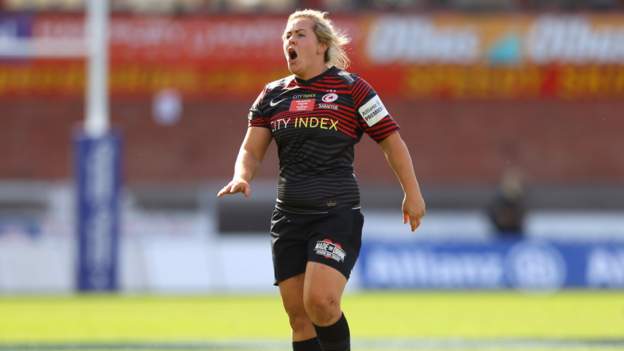
Saracens extended their lead at the top of the Premier 15s with a 39-28 victory over Worcester Warriors.
The London club are now 12 points ahead of second place Bristol Bears with six rounds left of the regular season.
It was a close match with Worcester putting up a great fight as heading into the last ten minutes there was a 31-28 scoreline in Saracens' favour.
But the two-time champions sealed victory with a Marlie Packer try and Zoe Harrison penalty.
Meanwhile, Exeter Chiefs and Wasps shared the points in their thrilling and physical 15-15 draw. The Chiefs started well with the first try through Clara Nielson, but Wasps hit back with a Maud Muir score.
However, South African international Zintle Mpupha got her second try in as many games to put Chiefs 10-7 up at the break. In the second 40 the visitors' Kate Zackary was given a yellow for a foul at the breakdown, but they extended their lead with a Rachel Johnson score.
The exciting encounter continued as Wasps' Bryony Cleall scored before being sent to the sin-bin. The hosts managed her absence well and kicked three points to level the score.
"It's more about the performance," Player of the Match Muir said of the result. "We gave it so much heart, we were smashing it."
Elsewhere, Harlequins were 26-12 victors against Gloucester-Hartpury. Shaunagh Brown was the first to dot down but Gloucester's Connie Powell struck back minutes later. Amy Cokayne and Lagi Tuima scored just before the break, but the former was handed a yellow for a deliberate knock-on early in the second half.
Quins didn't concede any points while a player down and Cokayne scored again, before Bianca Blackburn got a consolation score for Gloucester in the last minute of the game.
Loughborough Lightning defeated DMP Durham Sharks 58-5 in a bonus-point victory to leapfrog Exeter into sixth in the table. Helena Rowland, Georgie Lingham, Bo Westcombe-Evans, Lark Davies, Emma Hardy, Amanda Swartz and Maya Mueller all scored for Loughborough in their dominant performance.
Bristol Bears will look to close the gap on Saracens on Sunday when they face Sale Sharks.
Premiership: Worcester Warriors 13-29 Northampton Saints - Bonus point win sends Saints fourth
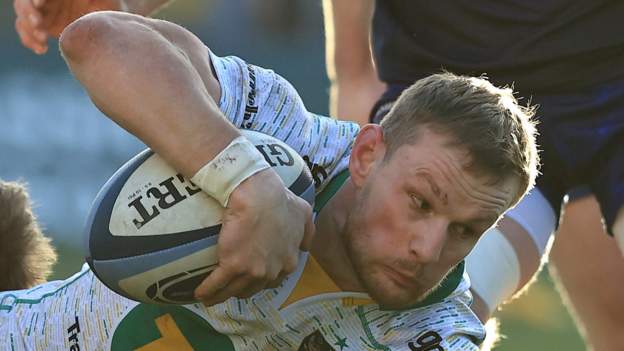
Northampton moved into the top four as they recorded a ninth consecutive victory over Worcester Warriors.
Tries from Rory Hutchinson, Sam Matavesi and Alex Mitchell gave Saints a commanding 19-3 lead at half-time.
Warriors threatened a second-half comeback with two tries in five minutes from the returning Rory Sutherland and Ashley Beck on his 50th appearance.
But James Fish's bonus point try, 10 minutes from time, ensured the visitors left with maximum points.
The victory moves Saints above Gloucester, who play Newcastle Falcons in a game delayed until 19:00 GMT due to stormy weather.
After a scrappy opening, Northampton centre Hutchinson took advantage when a maul broke down to cut back into space and beat a couple of tacklers to open the scoring after 22 minutes, with Dan Biggar adding the extras.
Fin Smith got Worcester on the scoreboard with a penalty three minutes later but then the hosts lost winger Perry Humphreys to a yellow card for a deliberate knock-on as Saints attacked.
Northampton had their second try when a Warriors offside allowed Biggar to send the ball into the corner, leading to Matavesi finishing off a driving maul from the lineout to make it 12-3 after 29 minutes.
It got worse for Worcester two minutes before the break when Mitchell dummied to pass before skipping away from just inside halfway to score and Biggar converted to put the visitors firmly in charge at the break.
Wales captain Biggar's 46th-minute penalty stretched the lead before Warriors eventually crossed the whitewash on the hour when Sutherland crashed over from short-range to make it 22-10.
Worcester reduced the gap further when Wales international Beck burst through a gap with 16 minutes left to take his side within nine points.
But the hosts haven't beaten Saints since November 2017 and any thoughts of a dramatic comeback win were extinguished when Fish powered over from a maul and Biggar converted again.
Worcester: Searle; Humphreys, Venter, Beck, van der Merwe; Smith, Simpson; Sutherland, Annett, Judge, Batley, Kitchener, Hatherell, T Hill (capt), Kvesic.
Replacements: Cutting, E Waller, Tyack, Clegg, Vailanu, Chudley, Williams, Hearle.
Northampton: Tuala; Sleightholme, Dingwall (capt), Hutchinson, Collins; Biggar, Mitchell; A Waller, Matavesi, P Hill, Ribbans, Ratuniyarawa, Wood, Harrison, Augustus.
Replacements: Fish, Iyogun, Carey, Nansen, Coles, James, Grayson, Proctor.
Referee: Ian Tempest (RFU).
Yellow cards: Humphreys (Worcester)
Premiership: London Irish 18-14 Exeter Chiefs - Exiles record rare double over Exeter
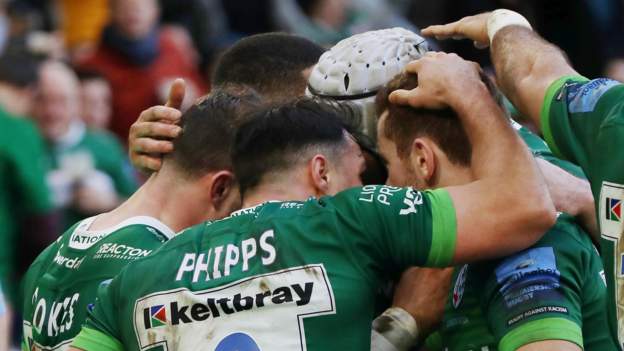
London Irish came from behind to beat Exeter and record their first league double over the Chiefs in 11 years.
Exeter led 14-0 after 20 minutes thanks to tries from Olly Woodburn and prop Patrick Schickerling.
But Matt Cornish went over and James Stokes added a try on the stroke of half time as the hosts began to take command and led at the break.
Irish had the better of the second half but could not extend the lead as Paddy Jackson missed a late penalty.
The win saw Irish move above Exeter and into sixth place in the Premiership as the Chiefs, who have finished in the top two in the last six Premiership seasons, slip further away from the play-off places.
Joe Simmonds' excellent break set up the field position for Woodburn to go over under the posts a few phases later for a fifth-minute lead before a well-executed 50-22 from the Chiefs fly-half saw Exeter pressurise Irish and force a tap penalty which allowed Schickerling to score his first try for the club.
But Irish began to hit their straps as Cornish forced his way over after pressure on the Exeter line and Jackson added two penalties.
Exeter had a chance of a third try shortly before the break but infringed and the Exiles were able to relieve the pressure before going up the other end and scoring when Stokes got on the end of a Ben Loader pass to dive into the right corner.
Irish also began the second half strongly and Exeter did well to keep the hosts out with some impressive defence.
The Exiles continued to turn the screw on the Exeter pack with an hour gone as the Chiefs conceded a host of penalties close to their line, but Irish failed to convert their territorial advantage.
Exeter had a great period of pressure with 10 minutes left but knocked on inside the Irish 22 - and Jackson missed a penalty with the final kick of the game in a scoreless second half.
London Irish: Stokes; Loader, Rona, Van Rensburg, Cinti; Jackson, Phipps; Goodrick-Clarke, Cornish, Hoskins, Simmons, Coleman, Rogerson (capt), Pearson, O'Brien.
Replacements: Willemse, Gigena, Van der Merwe, Munga, Cracknell, Martin Gonzalez, O'Sullivan, Rowe.
Exeter: Hogg; Woodburn, Whitten, H Skinner, O'Flaherty; J Simmonds (capt), J Maunder; Kenny, Innard, Schickerling, Gray, S Skinner, Ewers, Kirsten, Armand.
Replacements: Yeandle, Keast, Iosefa-Scott, Jenkins, Grondona, S Maunder, O'Brien, Hodge.
Referee: Matthew Carley (RFU).
Rory McIlroy two back entering final round of Dubai Desert Classic

DUBAI, United Arab Emirates — Rory McIlroy moved within two shots of leader Justin Harding after the third round at the Dubai Desert Classic on Saturday as the Northern Irishman tries to win the event for the third time.
McIlroy shot a 3-under 69 to get to 10 under overall at the tournament he won in 2009 and 2015. He closed the gap on Harding, who maintained his halfway advantage with a 71 at Emirates Golf Club.
“It would be nice to get another win, especially here in Dubai,” the No. 8-ranked McIlroy said. “I’ve just got to go out there tomorrow and try to play a good round of golf and hopefully it’s good enough.”
On the back nine, McIlroy hit three superb second shots into par 5s that set up an eagle and two birdies. He had two other birdies on the front nine along with three bogeys on the day.
“It was a fair reflection how I played. Some good things in there and a couple bad things as well and I feel like it all evened out by the end and it was nice to birdie the last and shoot something in the 60s and play myself into the final group tomorrow,” the four-time major winner said.
Tommy Fleetwood (69) and Erik van Rooyen (71) are both three strokes off the lead, one shot clear of a group of six that includes Paul Casey (70) and Tyrrell Hatton (73).
Harding was disappointed not to add birdies on his final two holes. He finished with two birdies and a bogey.
“The greens are tough,” the South African said. “They are concrete but when you are chipping into them it’s difficult to chip them up close. You find yourself making 4- or 5-footers all day long.”
Still, Harding said he’s pleased with his position heading into Sunday.
“At the end of the day, I’ve just got to go out and keep doing what I’m doing, and make a couple birdies and shoot 70, 69, something like that, and make them shoot 5- or 6-under par, credit to them,” he said.
Three-time major champion Padraig Harrington (69) is five shots back.
Europe's best clubs keep getting better. Is it time to curb their dominance?
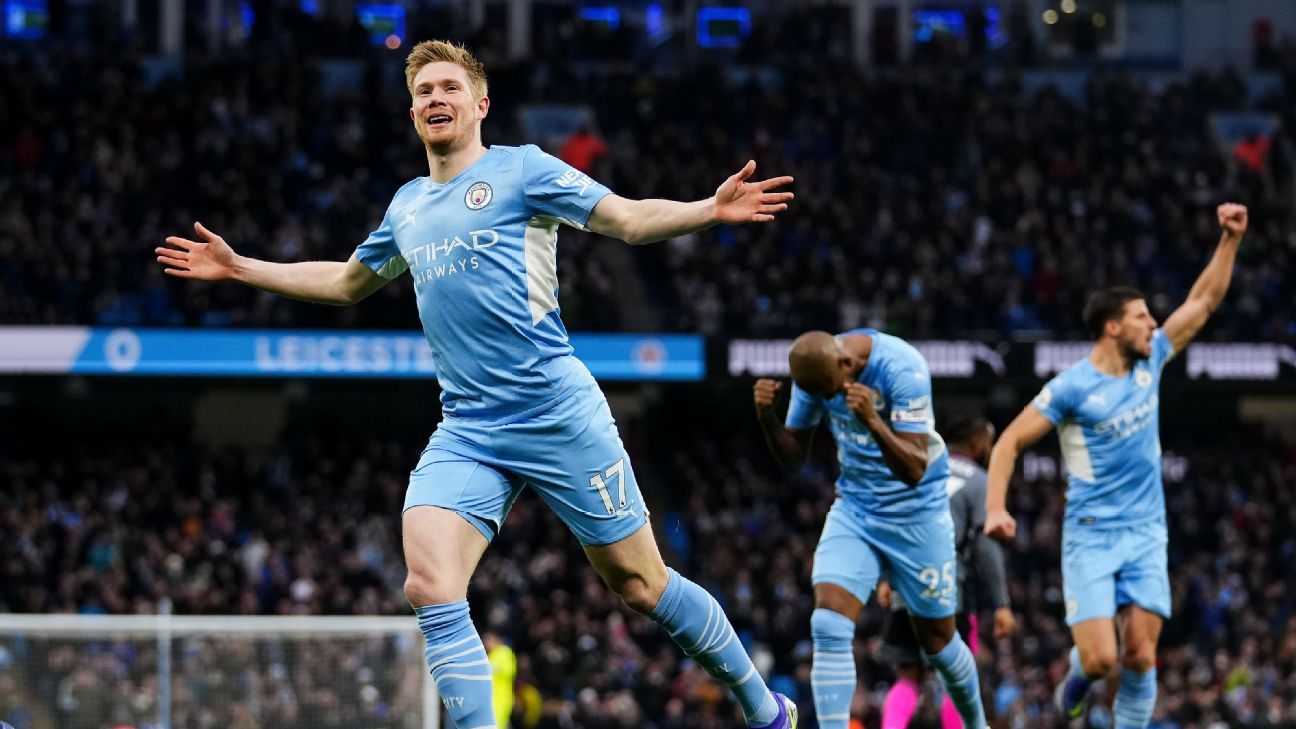
If you're a fan of dramatic title races, you probably aren't enjoying the 2021-22 European soccer season all that much.
Bayern Munich lead the Bundesliga by six points over second-place Borussia Dortmund, and FiveThirtyEight gives the German giants a 97% chance of winning their 10th consecutive Bundesliga crown. In response to losing Ligue 1 last season, Paris Saint-Germain spent even bigger than normal, added Leo Messi among others, and lead by 11 points with a 98% title chance. Real Madrid and Inter Milan lead LaLiga and Serie A by four points each, both with 82% odds.
Even the vaunted Premier League, with its fat pockets and Big Six clubs, is looking at another season without a gripping race. Manchester City lead Liverpool by nine points and enjoy an 82% title chance as well. Any hope of a gripping race all but ended when City ripped off 12 consecutive league wins beginning in early November. As incredible as the 2018-19 chase was -- City and Liverpool galloped away from the field, earning 98 and 97 points, respectively -- it's the only time since 2014 that the Premier League title was decided by fewer than seven points. Someone almost always pulls away.
We're certainly used to powerful clubs ruling soccer -- it's not exactly a new concept. After all, Bayern have won more than half of the Bundesliga titles dating back to 1969, and Real Madrid and Barcelona have combined for 57 LaLiga titles since 1945.
Still, it hasn't always been like this.
The Premier League was decided by five or fewer points 10 times in the 20 seasons between 1995 and 2014, and by zero or one point on five occasions. And even with Bayern winning more titles than anyone else, the Bundesliga used to be the paragon of thrilling title races, decided by either zero or one point 10 times between 1977 and 1995 and by two or fewer points seven times between 1997 and 2009. It's been decided by single digits only once during Bayern's current title streak.
The Elo Football rankings track nearly every European result back to the mid-1950s. An Elo system is simple and straight-forward -- the winning team takes points from the loser, you get more points for beating someone significantly better than you (and vice versa), and a lower-rated team can take points from a superior team in the case of a draw as well. It can serve as basically a running scorecard from year to year. It can also tell us a lot about the power of powerful clubs.
The more you win, the more points you take from opponents, and the winningest clubs are taking more from others than they used to. At the end of the 1994-95 campaign, Juventus ranked first with 2,116 points, winning Serie A and the Coppa Italia but losing to No. 9 Parma in the UEFA Cup (now the Europa League) final. Ajax beat AC Milan in the Champions League final -- the clubs finished third and fourth in the year-end Elo Football ratings with 2,091 and 2,070 points.
Ten years later, in the 2004-05 season, those point totals would have been good for seventh, 12th and 13th overall. Today, they would barely land you in the top 20: Borussia Dortmund sit 15th with 2,117 points, while FC Salzburg are 23rd with 2,073.
Between 1965 and 2003, only two teams -- 1973 Ajax and 1979 Liverpool, generally regarded as two of the greatest ever teams -- cleared 2,200 Elo points at the end of the season. In the 2010s alone, 11 teams topped 2,300. Barcelona set a record in 2011, Real Madrid topped it in 2012, and in 2015 Barcelona set the all-time season-ending high: 2,372 points. Bayern currently stand at 2,373.
Of course, you don't need fancy math to understand what we're seeing -- just look at the table. Five of the six best point totals in Premier League history have been generated in the past five seasons, and the current Manchester City team is on a similar pace. No top-flight English team had ever won more than 14 straight league matches before 2017; City and Liverpool have each topped 15 straight twice since then. In Germany, no Bundesliga team had ever topped 2.32 points per game before 2011-12; Borussia Dortmund did it in 2012, and Bayern have done it nearly every season since.
Three questions, then: How did it get like this? What could be done about it (if the powers that be decided something should be done, anyway)? And how much further can the richest clubs separate themselves from the pack if nothing is done?
The push away from parity
It's easy enough to explain how we got here.
Basically every major development the sport has seen in the past 30 years pushed us away from parity. The Bosman ruling of 1995 prevented clubs from collecting transfer fees for out-of-contract players and significantly increased player movement throughout Europe. This has been fantastic for players themselves (and their agents), but it came with a cost: certain clubs with bigger brands and checkbooks were poised to take better advantage.
Then there's the Champions League. The conversion of the European Cup tournament into an actual league in 1992, with more marquee matches (and more matches, period), increased revenue dramatically for those lucky enough to participate. The further expansion of the Champions League to include not just league champions increased the margin of error for the top clubs as well. They could more reliably count on Champions League participation and spend accordingly.
Money both in and out has skyrocketed in the past three decades, and the recipe for inequality has been baked right into the cake -- the "market pool" portion of Champions League revenue distribution assures that clubs with bigger names will make more for reaching a certain round of the tournament than lesser lights would for reaching the same round. Barcelona famously made nearly €40 million more for losing in the 2019 semis than Ajax did, simply because they were Barcelona.
All of this hasn't stopped some of the biggest brands from floundering at times, but its effects have been obvious. With how everything has developed, it would have been shocking if the richest clubs hadn't pulled away from the pack.
Salary caps, player caps and playoffs
The potential fixes are pretty easy to describe (and are potentially unrealistic).
From a macro level, inequality and the existence of big-bads don't automatically serve the sport poorly. A Real Madrid-Barcelona Champions League final would likely draw much higher TV ratings than, say, Sevilla-Atalanta, and overall revenues, TV ratings, attendance, et cetera, certainly didn't hint at many high-level issues before the COVID years. And again, to the extent that the Bosman ruling made club expenses skyrocket, it did so in favor of the players. That isn't a bad thing in and of itself, even if the game's mega-agents are deriving more and more clout and cash from it.
Still, the pandemic years certainly shined a bright light on the effects of inequality, bringing major hardship to lower-level clubs and leagues and showing all the cracks in even the higher levels of the sport. And last spring's failed Super League venture showed us both how stratified the haves-versus-have-nots divide is and how difficult it will be for said divide to ever get bridged.
People like Real Madrid president Florentino Perez and Barcelona president Joan Laporta still believe that the Super League was necessary to save the sport. As Perez said: "It's a format to prevent football, which is losing interest, from dying." Let them make all the money they want, and it will trickle downstream and cure everything, you see.
In a battle of the richest clubs vs. UEFA vs. FIFA, it feels like the war for the soul of the sport is being fought by the most soulless. Still, we know what potential fixes are, or could be, in play.
UEFA created a set of Financial Fair Play regulations in the late 2000s to crack down on teams spending more than they earned. As the surge of big-brand dominance of the 2010s suggests, it hasn't even slightly worked to limit spending or increase parity. The regulations have been too easy to tiptoe around with creative bookkeeping and have ended up punishing lower-level clubs above all else. (Funny how that's what typically tends to trickle downstream.)
UEFA is in the process of crafting a new set of regulations that potentially include a salary cap of sorts, plus perhaps a luxury tax for overspending. Perhaps it will rein things in a bit for the richest of the rich, as it has in some American sports leagues; at the very least, LaLiga's attempts at a salary cap structure have prevented Barcelona from racking up even more irresponsible levels of debt of late.
As the league races continue to lose drama, you can certainly find more conversations about changing league formats, as well -- adding an American-style playoff to the end, for instance, or creating multi-nation super leagues like the oft-discussed "Benelux" league that would pit the best teams from the Netherlands and Belgium (and Luxembourg!) against each other, theoretically increasing both revenue and competition levels. At the moment, none of these changes appear to be in heavy discussion among actual decision-makers.
There are also plenty of other, obvious things UEFA could do if it genuinely wanted to create a more even playing field. It could dump the "market pool" distribution, obviously. It could increase the solidarity payments that go to clubs and leagues further down on the totem pole, too. And one of my personal favorite ideas, as described here by ESPN's Gabriele Marcotti, is lowering the number of players a club can register. If you can't redistribute the wealth, you could at least redistribute the talent.
How far can dominance go?
Meanwhile, where's the limit?
The biggest brands have been and will always be the biggest brands. It's a pretty closed club, so to speak. Their level of dominance has indeed increased, and while it's important to wonder how that could be curbed, it's also interesting to wonder how much further this can go. If money continues to flow upward, how much more dominant might the largest clubs become?
In theory, we're approaching the limit, and not just from a "Bayern certainly can't win more than 100% of the Bundesliga titles" perspective. Because of soccer's innate randomness -- plus the fact that you can still fit only 11 players on the pitch no matter how much money you have (and a lot of them will suffer injuries, no matter how much money you plug into your physio staff) -- it's going to be difficult for the top teams to win more than they already are.
The top eight teams in the current Elo Football ratings are Bayern Munich, Manchester City, Liverpool, Real Madrid, Chelsea, Inter, PSG and Ajax. During their current league seasons and the 2021-22 Champions League, they have played 205 matches that were not against each other. They've won 154 of them with 34 draws and just 17 losses, good for 2.42 points per game overall.
That's dominant, but it goes beyond even that: Of those 17 losses, only four featured a negative xG differential. So from an expected production standpoint, they were the superior team even in most of their losses, sometimes dramatically so. There have been some subpar performances, but even with injuries and the most recent COVID-19 variant creating a lot more player absences and odd lineups, it's hard for these top teams to improve on what they have done of late, if only because the game is always going to produce randomness.
So soccer might not be capable of producing teams with results more dominant than what we've seen of late. That's something, right?
During the 1990s, the best clubs in Europe, per Elo Football, were Real Madrid (1990), Arsenal (1991), AC Milan (1992), Barcelona (1993), Manchester United (1994, 1996 and 1999) and Juventus (1995, 1997 and 1998). Pretty familiar names. But their levels of dominance weren't so huge as to preclude Cinderella runs. Marseille, after all, won the Champions League in 1993, along with Ajax (1995) and Borussia Dortmund (1997). Even as late as 2004, a string of upsets gave us a Porto-Monaco final that officially introduced the world, for better or worse, to Porto manager Jose Mourinho. And teams from lower-level leagues -- Turkey (Galatasaray in 2000), Russia (CSKA Moscow in 2005 and Zenit in 2008), Ukraine (Shakhtar Donetsk in 2009) -- were strong enough to win the Europa League not too long ago.
In 2022, Spanish, English and German clubs -- well, one German club -- have won the past 11 Champions League and past 10 Europa Leagues. The best leagues have distanced themselves from the pack, the richest league (the Premier League) has separated itself even further, and in a given year, a small handful of teams not only lords over all the rest but removes any drama from league title races more often than not.
Obscene amounts of money clearly don't guarantee world domination; Manchester United and Arsenal have proved that of late, and Barcelona's recent travails have certainly shown that having the fattest checkbook doesn't mean you're going to use it properly. (Plus, nouveau-riche Newcastle are quickly finding out that simply throwing money at a problem might not draw your first-choice options to town.)
Good management does still matter, and randomness will still play a role in the outcomes of the sport. Sometimes Southampton will take points off Manchester City, and sometimes Lille will beat PSG for the league title. It wouldn't take too many serious tweaks to even the playing field a smidge -- a Financial Fair Play approach that actually sort of works, for instance, and a slight cut of the player registration max and elimination of the damned market pool. We'll see if those in charge of the sport have the necessary wherewithal, and find the common ground, to make necessary decisions.
Earthquake felt at Ireland-Zimbabwe U-19 World Cup match at Queen's Park Oval
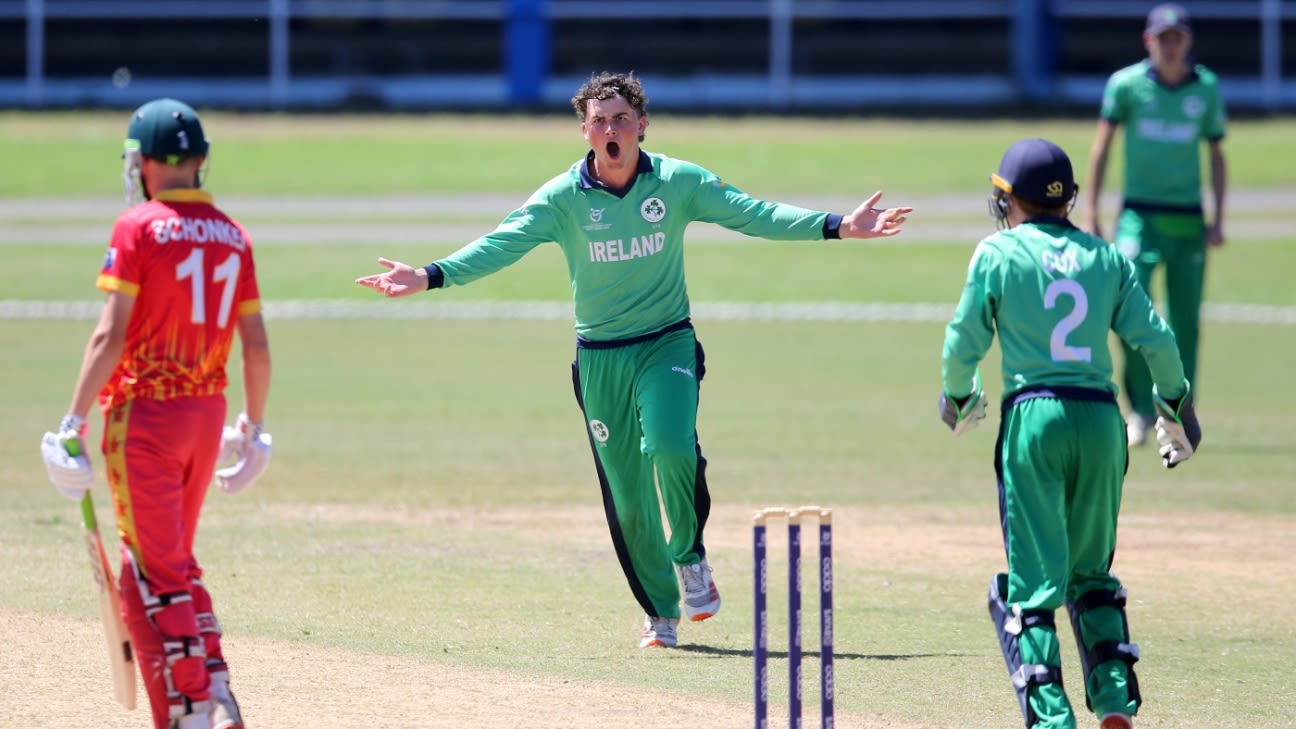
Sreshth Shah is a sub-editor at ESPNcricinfo. @sreshthx
Zimbabwe vs Afghanistan postponed a second time
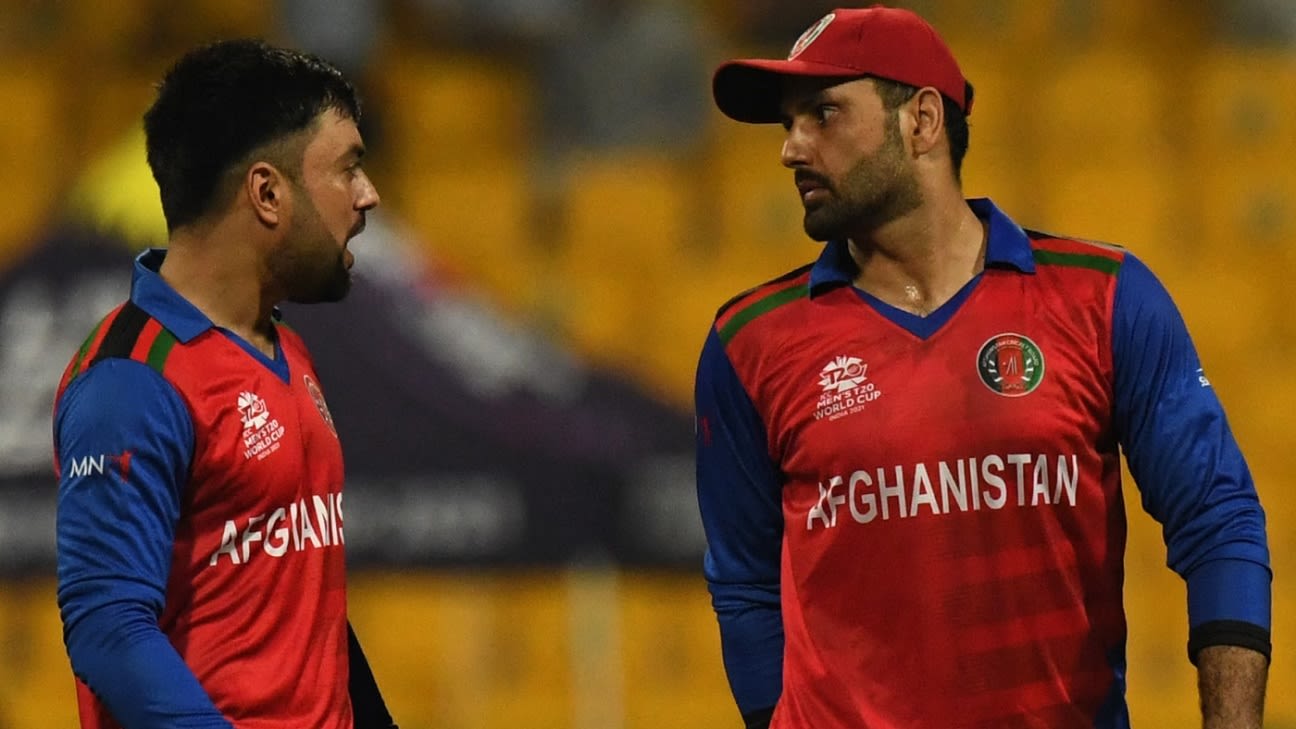



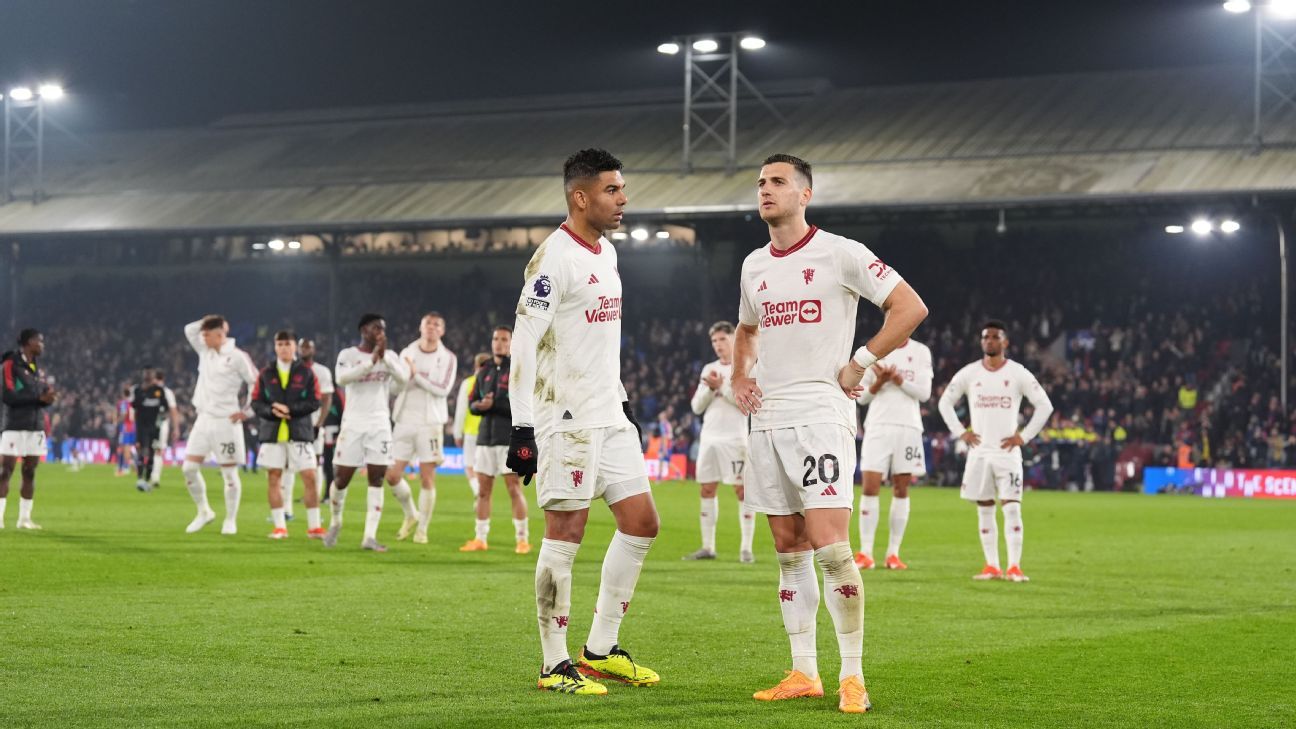
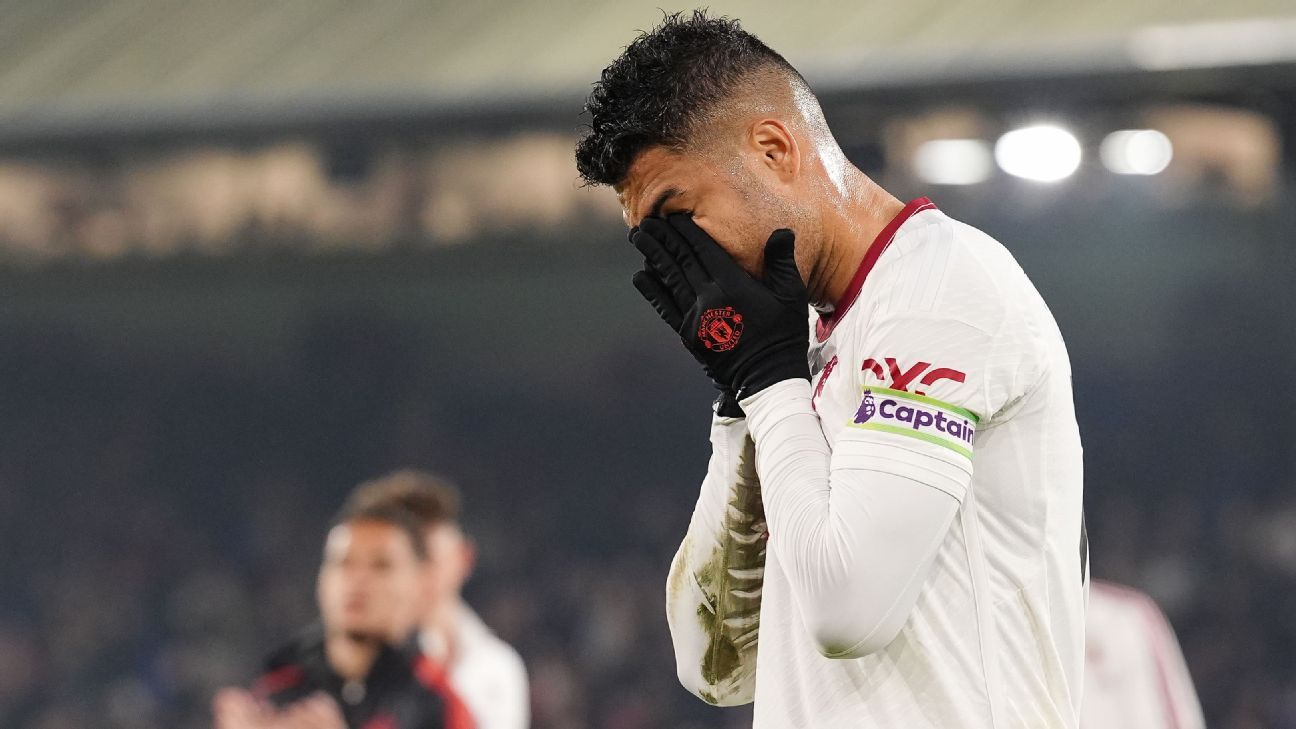





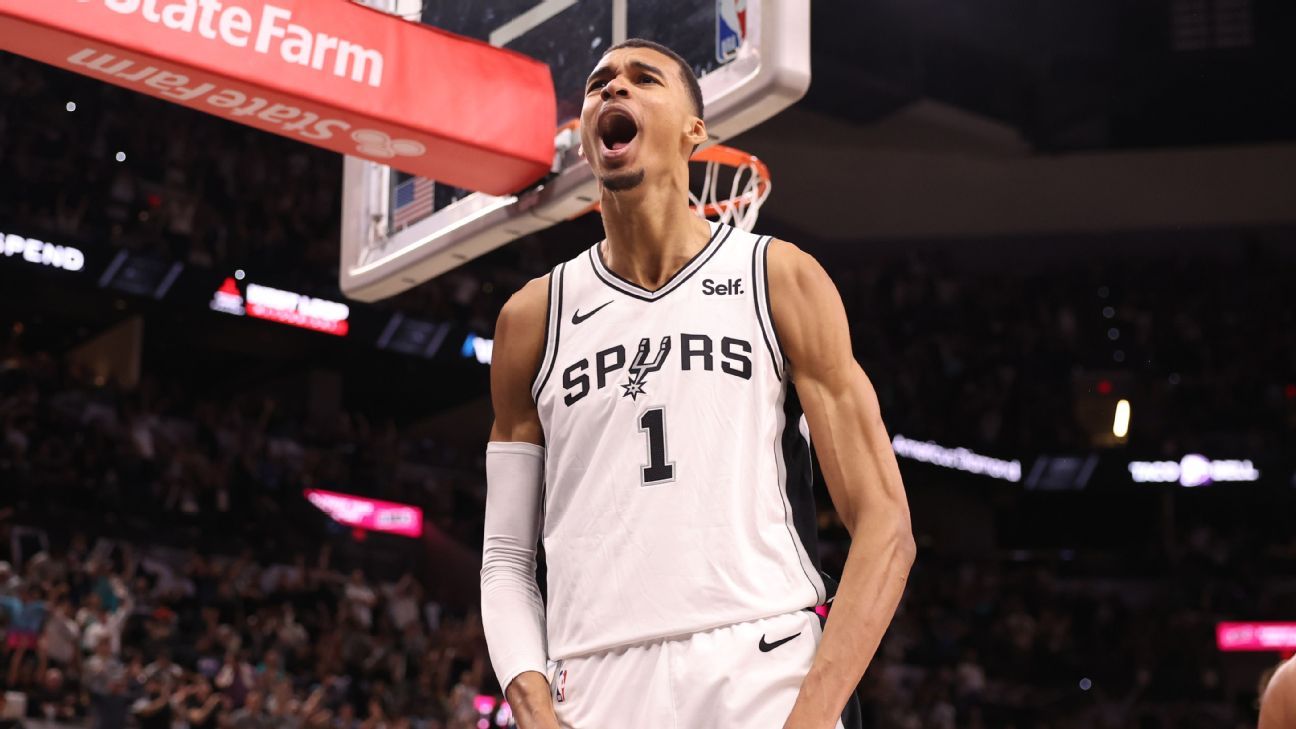
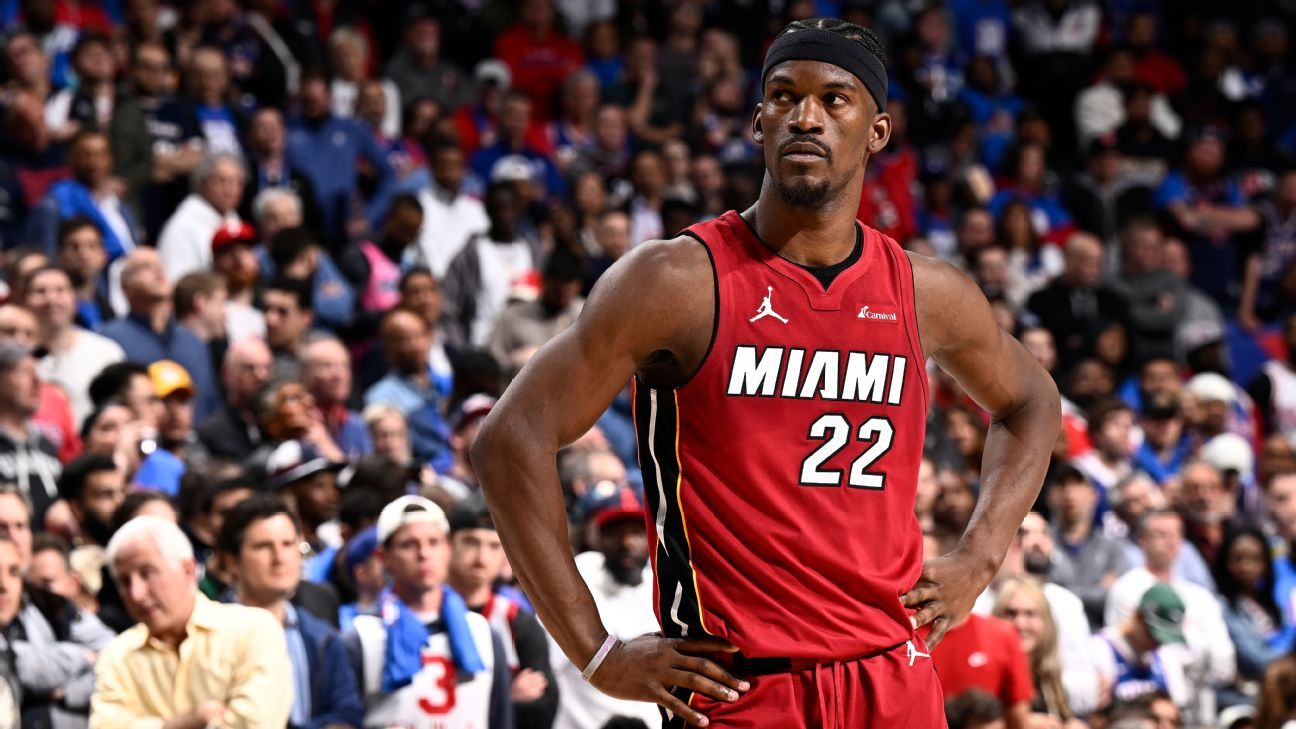
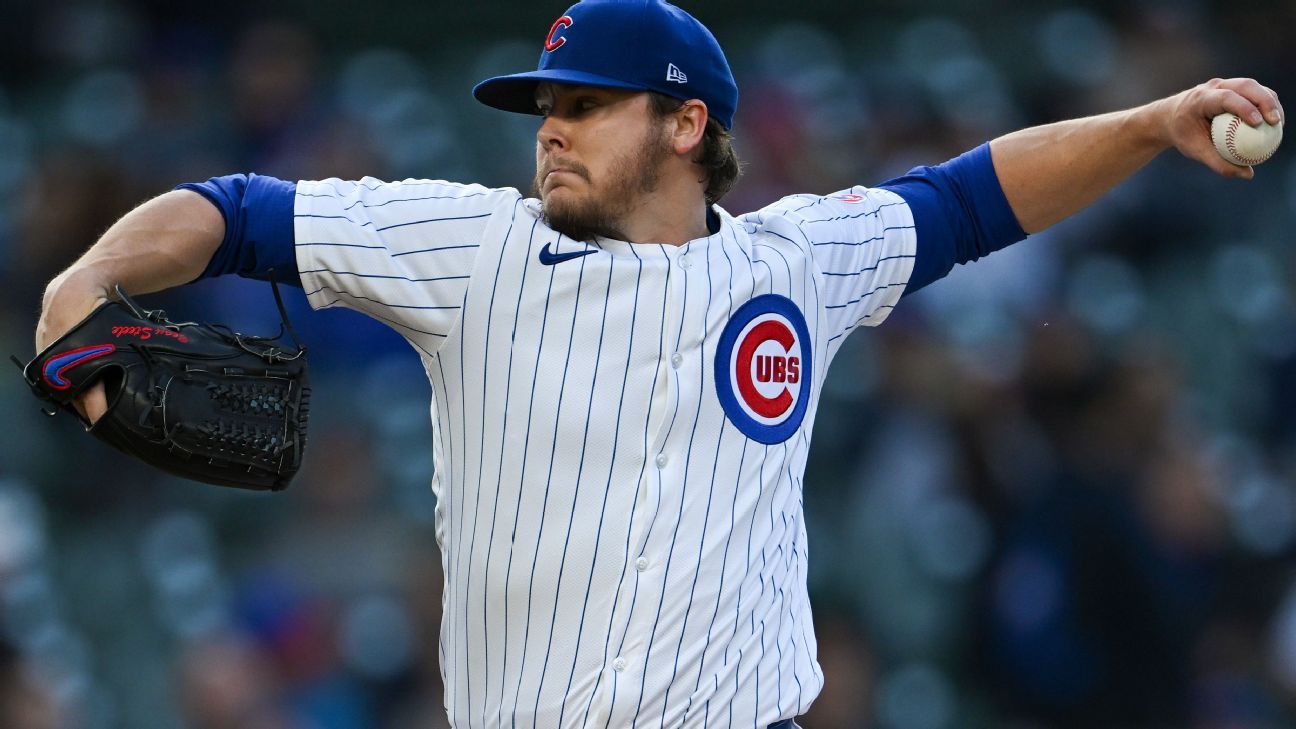
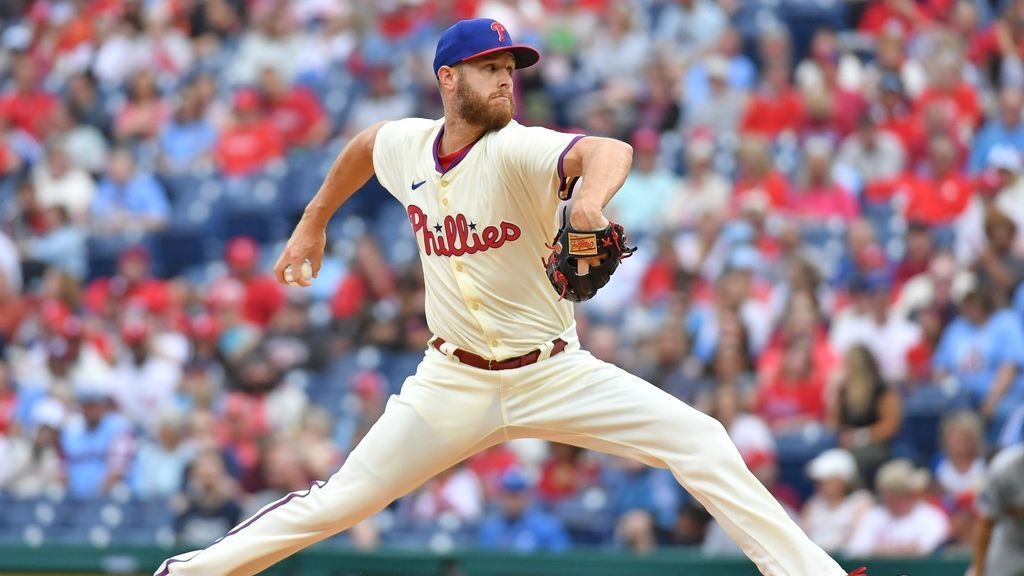

 Phone: (800) 737. 6040
Phone: (800) 737. 6040 Fax: (800) 825 5558
Fax: (800) 825 5558 Website:
Website:  Email:
Email: 






